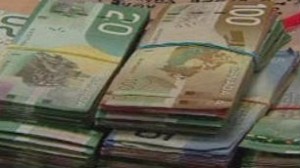The law requires large banks to list the ways in which they are exposed to possible money laundering and to assess that risk.
Earlier this year, funding for the money-laundering watchdog, the federal Financial Transactions and Reports Analysis Centre of Canada, or FINTRAC, was increased by $8 million.

On July 20, 2010 word emerged that FINTRAC had fined B.C. Lottery Corp. $670,000 for failing to properly monitor and report possible high cash transactions potentially related to organized crime.
How does money laundering work?
Money laundering is hiding the source of illegal funds from enforcement authorities so it can’t be traced.
Read more.
COUNTERING OFFSHORE TAX EVASION, by the Organization for Economic Co-operation and Development (OECD)
How is a tax haven identified?
1) No or nominal tax on the relevant income;
2) Lack of effective exchange of information;
3) Lack of transparency;
4) No substantial activities.
Does the OECD have a list of tax havens?
Over 40 jurisdictions were identified as meeting the tax haven criteria in June 2000.
Do the standards allow for the exchange of information on companies and trusts and their owners and beneficiaries?
Yes. The standards impose an obligation to exchange all types of information forseeably relevant to the administration and enforcement of the requesting country’s domestic tax laws. This could include information on companies and trusts and their owners and beneficiaries. Moreover, a state cannot decline to provide information in response to a request for exchange of information solely because it is held by a person acting in an agency or fiduciary capacity such as a trustee.
Who established the standards?
The principles of transparency and effective information exchange have been articulated and refined through the work of the OECD’s Global Forum. These standards have been endorsed by the G20 and the UN Committee of Experts on International Cooperation in Tax Matters.
Discussion Questions:
- Should Tax Haven Countries exist?
- Do you think our Canadian Government and the G20 will abolish or dimish Tax Haven Jurisdictions?
- Why do you view money laundering as a problem in our present day society?
For more information please contact:
Jeffrey Owens ([email protected])
or
Pascal SaintAmans ([email protected])
of the OECD Centre for Tax Policy and Administration









Leave a Reply